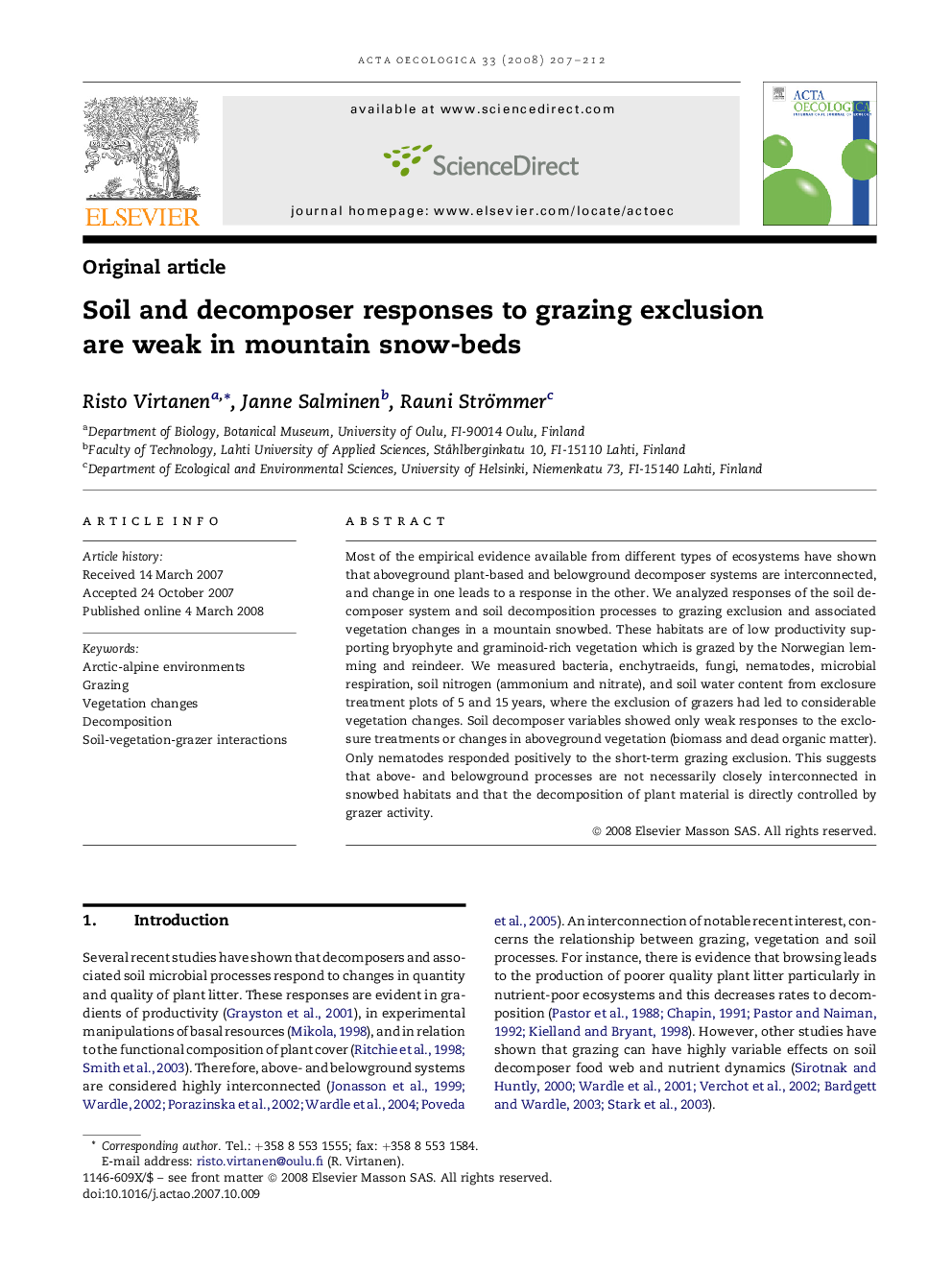| Article ID | Journal | Published Year | Pages | File Type |
|---|---|---|---|---|
| 4381089 | Acta Oecologica | 2008 | 6 Pages |
Most of the empirical evidence available from different types of ecosystems have shown that aboveground plant-based and belowground decomposer systems are interconnected, and change in one leads to a response in the other. We analyzed responses of the soil decomposer system and soil decomposition processes to grazing exclusion and associated vegetation changes in a mountain snowbed. These habitats are of low productivity supporting bryophyte and graminoid-rich vegetation which is grazed by the Norwegian lemming and reindeer. We measured bacteria, enchytraeids, fungi, nematodes, microbial respiration, soil nitrogen (ammonium and nitrate), and soil water content from exclosure treatment plots of 5 and 15 years, where the exclusion of grazers had led to considerable vegetation changes. Soil decomposer variables showed only weak responses to the exclosure treatments or changes in aboveground vegetation (biomass and dead organic matter). Only nematodes responded positively to the short-term grazing exclusion. This suggests that above- and belowground processes are not necessarily closely interconnected in snowbed habitats and that the decomposition of plant material is directly controlled by grazer activity.
